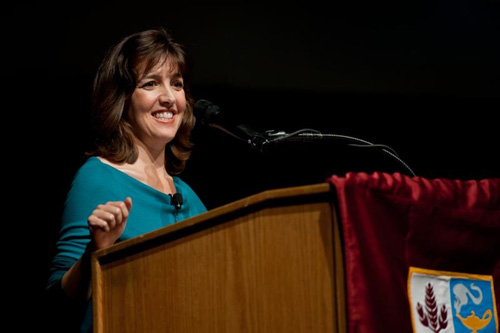
להלן חמש תפיסות מוטעות לגבי בעיה חמורה ונרחבת בחינוך היום: רמאות היא לא בעיה בבית הספר של הילד שלי; ילדים לרמות באותן הדרכים היום כפי שעשו בעבר; רק ילדים הנאבקים ברמות בית הספר; תלמידים שרמות לא יודעים בין טוב לרע; הרמאות היא בלתי צפויה.
אתגר הצלחה, a non-profit organization at the Stanford University School of Education, argues that more awareness is needed among parents and teachers about cheating misconceptions in order to positively affect academic dishonesty. “Cheat or Be Cheated,” a recently released Challenge Success white paper, discusses the evidence that dispels these misunderstandings based on its review of fifteen landmark studies on cheating in addition to their own research with schools and students.
I chatted with Dr. דניז אפיפיור, Challenge Success co-founder and senior lecturer at Stanford University, about the report and the solutions she believes parents and educators can adopt immediately to help curb cheating behavior and encourage integrity.
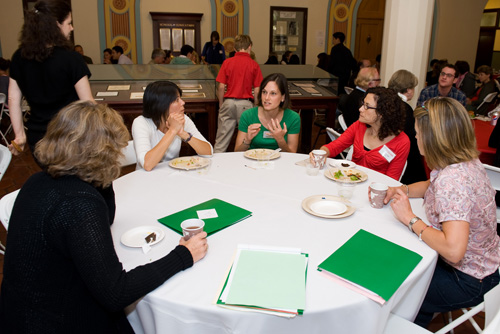
The white paper indicates that students cheat more when they believe that grades and performance are valued in their classrooms and less when they believe that learning and mastery are valued. If we reduce testing will we reduce cheating?
We know that if you change the forms of assessment, you can definitely decrease cheating behavior. Students are less likely to cheat on an assignment where they produce multiple drafts for review or on an assignment that is personalized — where they need to tie a concept or theory to their own life experiences. Even on a test, a teacher can reduce the likelihood of cheating by asking for in-depth responses as opposed to fill in the blanks or multiple choice, and testing for mastery/deep understanding as opposed to memorization of content. מחקרים מראה כי תלמידים לרמות יותר כאשר הם מאמינים שציונים וביצועים מוערכים בכיתות ו פחות כאשר הם מאמינים כי למידה, deep understanding and mastery are valued.
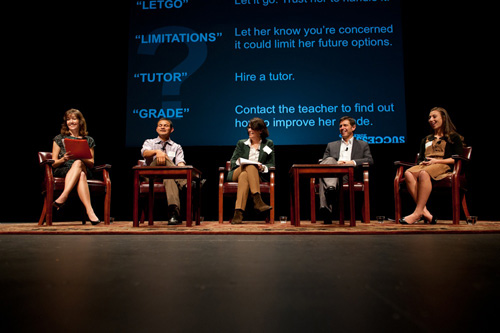
סטודנטים’ תפיסות של מוריהם יכולות להשפיע גם על התנהגות רמאות. האם זה אומר שכאשר מורים מוסמכים ואכפתיות, ילדים לרמות פחות?
כאשר תלמידים תופס שמוריהם הם מוכשרים ואכפתיות, then they are less likely to cheat in those classrooms. Most teachers care about their students, but the students themselves have to believe it. The same is true for competency: the students need to perceive it. We encourage teachers to make their caring more explicit – learn the students’ names, ask about their lives outside of class, offer to help with assignments, offer more opportunities for student choice and voice in the classroom, and show that you truly support the kids and want them to succeed. An increased focus on social and emotional learning can improve the classroom climate and help kids see that the teacher truly cares.
Students who have strong, positive “school identification” are less likely to cheat. True or false?
True. Students who value school and feel like they belong in the school community are less likely to cheat. This holds true regardless of how these students are doing in school. If kids feel like they are part of a strong community and they value the learning that goes on there, they will be more likely to work honestly and with integrity. We encourage parents and educators to help students get involved in school activities, find ways for kids to get to know school faculty and staff, and help kids make friends at school so that they have a more positive school identification.
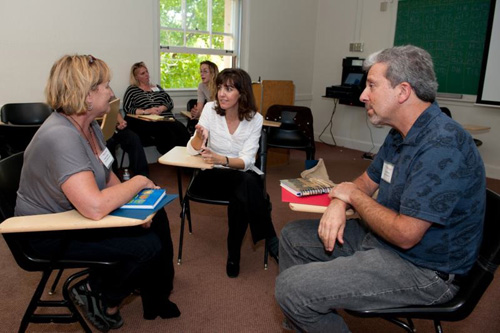
When students lack confidence in their academic capabilities they are more likely to cheat. True or false?
True. Several studies show that students who reported low feelings of competence and capability were more likely to cheat. Students get to a point where they believe, “There is no way that I can get a good grade on my own. I am not smart enough and don’t have the skills to do this.” These kids tend to think cheating is their only option. Educators and parents can encourage honesty and integrity, and at the same time find ways to build a support structure for learning so that all kids can improve their skills and feel capable.
Students cite trying to “get ahead” and getting into the “תקין” college along with a school culture that is “overly focused on achievement” as justifications for cheating. Are students more likely to cheat when they feel achievement pressure from parents, teachers and peers?
כן. Students who feel pressure from teachers, parents and peers to get top grades and get into the “תקין” college are more likely to cheat. They describe the culture at these high-achieving schools as “cut-throat competitive” and promoting a “succeed at all costs” mentality that leads to cheating on tests and assignments.
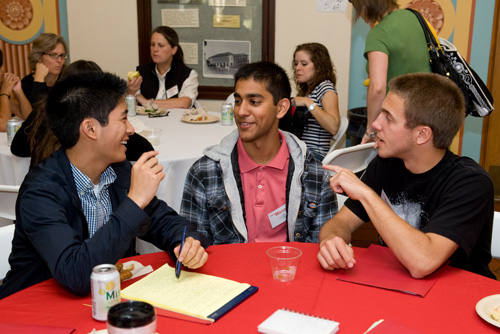
Can you share five suggestions that both educators and parents can put in place to help curb cheating behavior and encourage integrity?
1) Educators and parents should model integrity and maintain high standards for honesty. They should discuss integrity with the students, have clear and consistent policies for handling infractions, and emphasize that cheating will not be tolerated.
2) Educators and parents should emphasize mastery and learning rather than performance and grades. This means encouraging problem-based learning and focusing on deep understanding. Instead of focusing on the final performance results of a test or paper (במילים אחרות, the grades), talk about the learning and revision process and improvement over time.
3) Educators and parents should encourage positive school identity and help kids make connections at school that will help them feel like they belong and are valued.
4) Educators and parents should promote healthy assessment and grading policies. Parents should avoid offering external rewards such as money or privileges for students who complete their work or bring home good grades, and instead should focus on encouraging intrinsic motivation. Teachers should use multiple assessments to allow students more opportunities to show what they know and improve over time, and schools might consider eliminating “zeros” and class rankings.
5) And all adults — in school and out — should learn not to confuse “הַקפָּדָה” עם “load.” Since research shows that stressed-out and exhausted students may be more likely to cheat, schools and parents may want to abide by the “less is more” rule. Teachers can determine how much homework is really necessary to assign and be sure that students understand the purpose of each assignment. Parents can work on ways to reduce stress at home by helping students cut back on the number of extracurricular and enrichment activities and focusing on depth as opposed to breadth.

תמונות באדיבות ההצלחה האתגר, בית הספר לחינוך של אוניברסיטת סטנפורד.
בגלובל החיפוש לחינוך, להצטרף אליי ולמנהיגי מחשבה מוכרת בעולם כולל סר מייקל ברבר (בריטניה), DR. מיכאל בלוק (ארה"ב), DR. ליאון בוטשטיין (ארה"ב), פרופסור קליי כריסטנסן (ארה"ב), DR. לינדה דרלינג-Hammond (ארה"ב), DR. Madhav אוון (הודו), פרופ 'מיכאל Fullan (קנדה), פרופ 'הווארד גרדנר (ארה"ב), פרופ 'אנדי הארגריבס (ארה"ב), פרופ 'איבון הלמן (הולנד), פרופ 'קריסטין Helstad (נורווגיה), ז'אן הנדריקסון (ארה"ב), פרופ 'רוז Hipkins (ניו זילנד), פרופ 'קורנליה הוגלנד (קנדה), הכבוד ג'ף ג'ונסון (קנדה), גברת. שנטל קאופמן (בלגיה), DR. Eija Kauppinen (פינלנד), מזכיר המדינה Tapio Kosunen (פינלנד), פרופ 'דומיניק לפונטיין (בלגיה), פרופ 'יו לאודר (בריטניה), פרופ 'בן לוין (קנדה), לורד קן מקדונלד (בריטניה), פרופ 'בארי McGaw (אוסטרליה), שיב נדאר (הודו), פרופ 'R. נטריגין (הודו), DR. PAK NG (סינגפור), DR. דניז אפיפיור (ארה"ב), שרידהר ךאג'גופלן (הודו), DR. דיאן ראוויטש (ארה"ב), ריצ'רד וילסון ריילי (ארה"ב), סר קן רובינסון (בריטניה), פרופ Pasi Sahlberg (פינלנד), אנדריאס שלייכר (PISA, OECD), DR. אנתוני סלדון (בריטניה), DR. דוד שפר (ארה"ב), DR. קירסטן Immersive Are (נורווגיה), קנצלר סטיבן ספאן (ארה"ב), איב Theze (Lycee Francais ארה"ב), פרופ 'צ'רלס Ungerleider (קנדה), פרופ 'טוני וגנר (ארה"ב), סר דייוויד ווטסון (בריטניה), פרופסור דילן Wiliam (בריטניה), DR. מארק Wormald (בריטניה), פרופ 'תיאו Wubbels (הולנד), פרופ 'מייקל יאנג (בריטניה), ופרופ 'Minxuan ג'אנג (סין) כפי שהם לחקור שאלות חינוך תמונה הגדולות שכל המדינות מתמודדות היום. גלובל החיפוש לחינוך עמוד קהילה
C. M. רובין הוא המחבר שתי סדרות מקוונות רבים קוראות שלהיא קיבלה 2011 הפרס אפטון סינקלר, “גלובל החיפוש לחינוך” ו “איך וויל אנחנו קראו?” היא גם מחברם של שלושה ספרים רבי מכר, כולל אליס בארץ הפלאות Real.


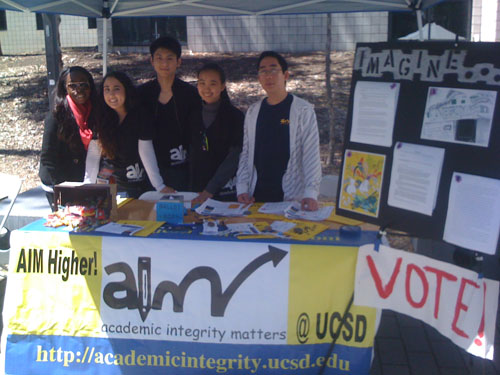

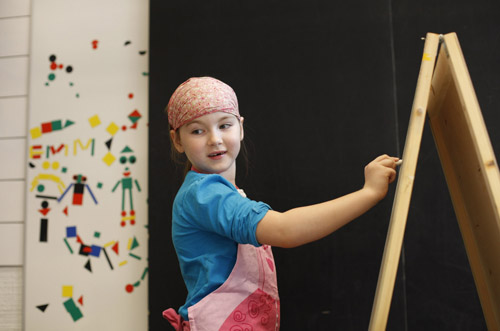
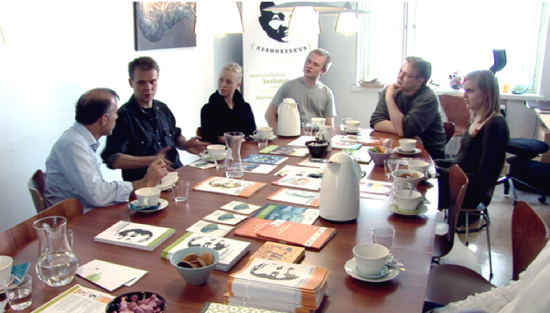
תגובות אחרונות